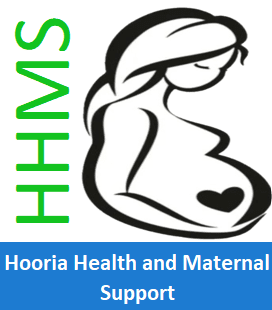Case Study: Improving Birth Outcomes Among Under-Served Communities

Posted on October 20th, 2025
Introduction: Closing the Gap in Maternal Health
Across the United States, maternal health outcomes remain uneven, especially for immigrant, refugee, and BIPOC mothers. Language barriers, limited access to care, and cultural misunderstandings often lead to unnecessary complications, isolation, and fear during pregnancy and birth.
At Hooria Health and Maternal Support, we believe no mother should face those challenges alone. Our work focuses on bridging these gaps, one family at a time, through culturally competent care, trusted relationships, and community collaboration.
Here’s how our model has transformed real lives and improved birth outcomes for underserved families in our community.
Background: The Challenge
Many mothers we serve come from backgrounds where healthcare systems are new or unfamiliar. They may speak little English, lack transportation, or have experienced trauma before arriving in the U.S.
In 2023, we identified three recurring barriers among our clients:
1. Limited access to prenatal education and early care.
2. Cultural and language disconnects between patients and providers.
3. Lack of postpartum support leads to delayed recovery and emotional distress.
These factors often resulted in increased anxiety, higher emergency visits, and reduced satisfaction with birth experiences.
Our Approach: Culturally Responsive, Family-Centered Care
Hooria Health and Maternal Support designed a three-part approach focused on prevention, partnership, and empowerment.
1. Prenatal Education and Trust-Building
We launched community-based workshops in familiar settings, mosques, community centers, and local homes, where women felt comfortable learning in their first language. Our doulas provided education on:
• Healthy pregnancy nutrition
• Signs of labor and when to seek help
• Birth plan creation
• Rights and options in the hospital setting
This built confidence long before labor began.
2. Labor and Delivery Doula Support
Each mother was paired with a doula who shared her cultural background and language whenever possible. Doulas served as:
• Emotional anchors during labor
• Advocates in the hospital room
• Interpreters of both language and culture
This simple change reduced stress and improved communication between mothers and medical staff.
3. Postpartum Recovery and Community Connection
After delivery, mothers received in-home visits focused on physical recovery, infant care, and emotional well-being. We also connected families to local food banks, transportation services, and women’s groups to ensure ongoing stability.
Results: Measurable Impact and Meaningful Change
Over the past year, this model has led to measurable improvement in maternal health outcomes among our participants:
• 98% attended all scheduled prenatal appointments (compared to 73% before program participation).
• 87% reported lower anxiety during labor thanks to doula support.
• 90% successfully initiated breastfeeding.
• 100% received at least one postpartum follow-up visit.
Beyond numbers, the most powerful outcomes were emotional: mothers felt respected, informed, and valued.
One mother shared:
“Before, I was scared to speak up in the hospital. With my doula, I had someone who understood me and helped me feel safe.”
Case Highlight: Restoring Confidence Through Care
Layla, a first-time mother from Somalia, arrived at the hospital feeling anxious and unsure. Her doula, who spoke Somali and English, stayed beside her through every stage of labor, helping her communicate her needs and offering comforting reminders of home.
After delivery, Layla said:
“She prayed with me, held my hand, and explained everything. I didn’t feel like a patient, I felt like a person.”
That single experience not only improved Layla’s confidence but also inspired her to become a community advocate for other expecting mothers.
Lessons Learned
Our experience reaffirmed that improving birth outcomes starts with listening. When healthcare is delivered through a culturally familiar lens, mothers gain:
• Greater trust in providers
• Increased participation in care
• Reduced fear and isolation
• Stronger emotional well-being
The formula is simple, but powerful: respect culture, empower mothers, and connect communities.
Final Thoughts: Empowering Every Birth Story
Every mother deserves care that honors her story, language, and culture. By combining doula support, education, and partnership, Hooria Health and Maternal Support continues to reduce disparities and create pathways to healthier births across the community.
If you’re a healthcare provider, community partner, or expecting mother who wants to learn more about culturally responsive doula programs, reach out to Hooria Health and Maternal Support. Together, we can create a future where every birth is safe, supported, and celebrated.
Contact Hooria Health and Maternal Support today to start a conversation about improving maternal health in your community.
Contact Us
Reach Out Today
Explore our caring maternal health solutions designed for you. Connect with our team today and begin a journey towards empowerment and support for you and your family.
